Gen Z Panel Sheds Some Light, and Some Hope, at El Encanto Symposium
Students, Scholars, Activists, and Parents Gather in Santa Barbara
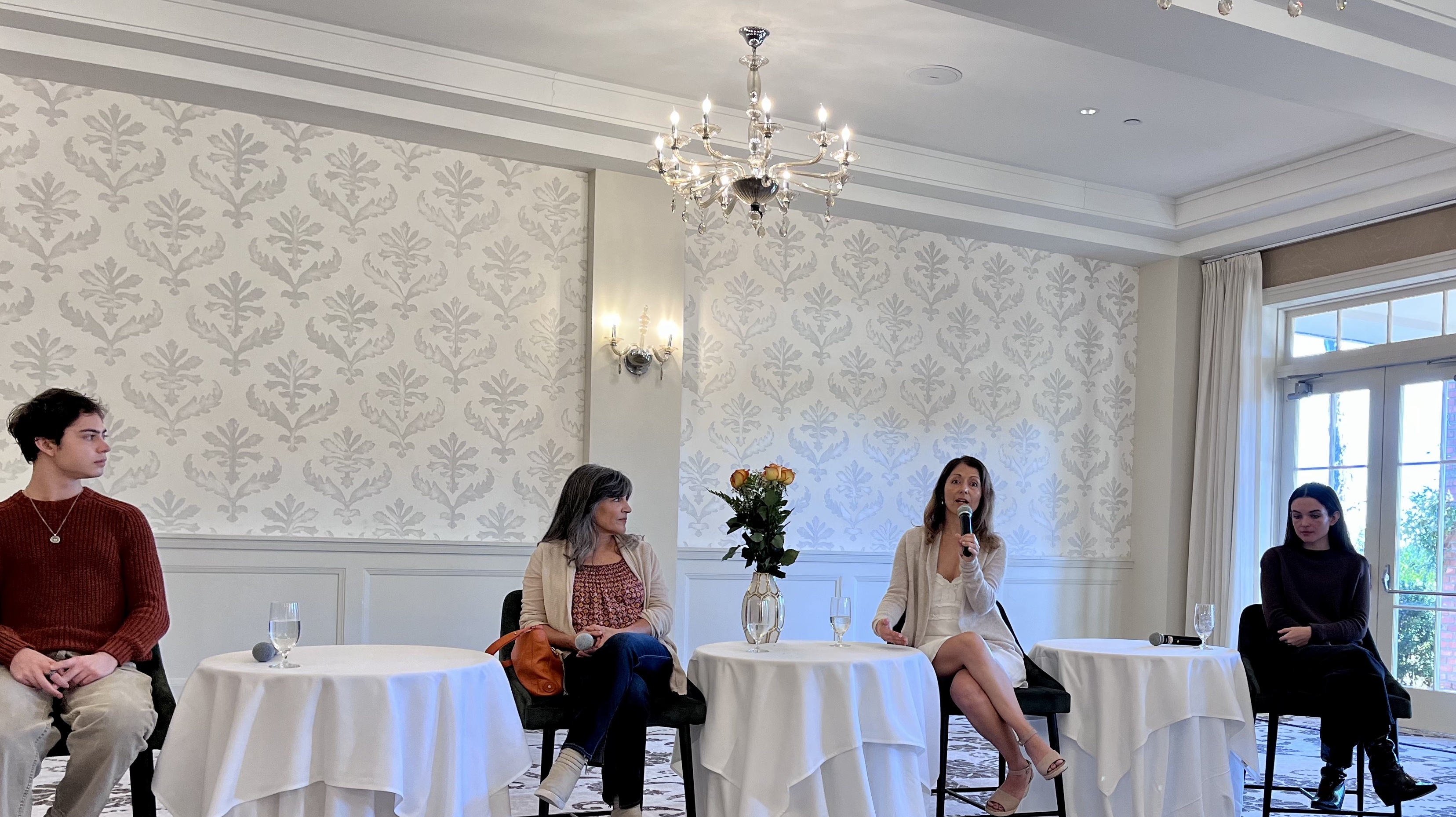
Like every parent of a twentysomething, I was eager for insights about Gen Z, and I’ve also been curious about the El Encanto Literary Club series that podcast host, author, and teacher Mandy Jackson-Beverly has been leading at the El Encanto this year. Still, the recent Sunday afternoon I spent at the “Gen Z Symposium” at the hotel far exceeded my expectations. The panel itself, composed of two professors, who happen to be sisters — Dr. Yalda T. Uhls from UCLA and Dr. Maryam Kia-Keating from UCSB — and two impressive representatives from Gen Z — Victoria Hammett of Gen-Z for Change and Zach Gottlieb of Talk with Zach — was fascinating and Jackson-Beverly took the conversation in all sorts of interesting directions.
Here are a few snippets from the symposium.
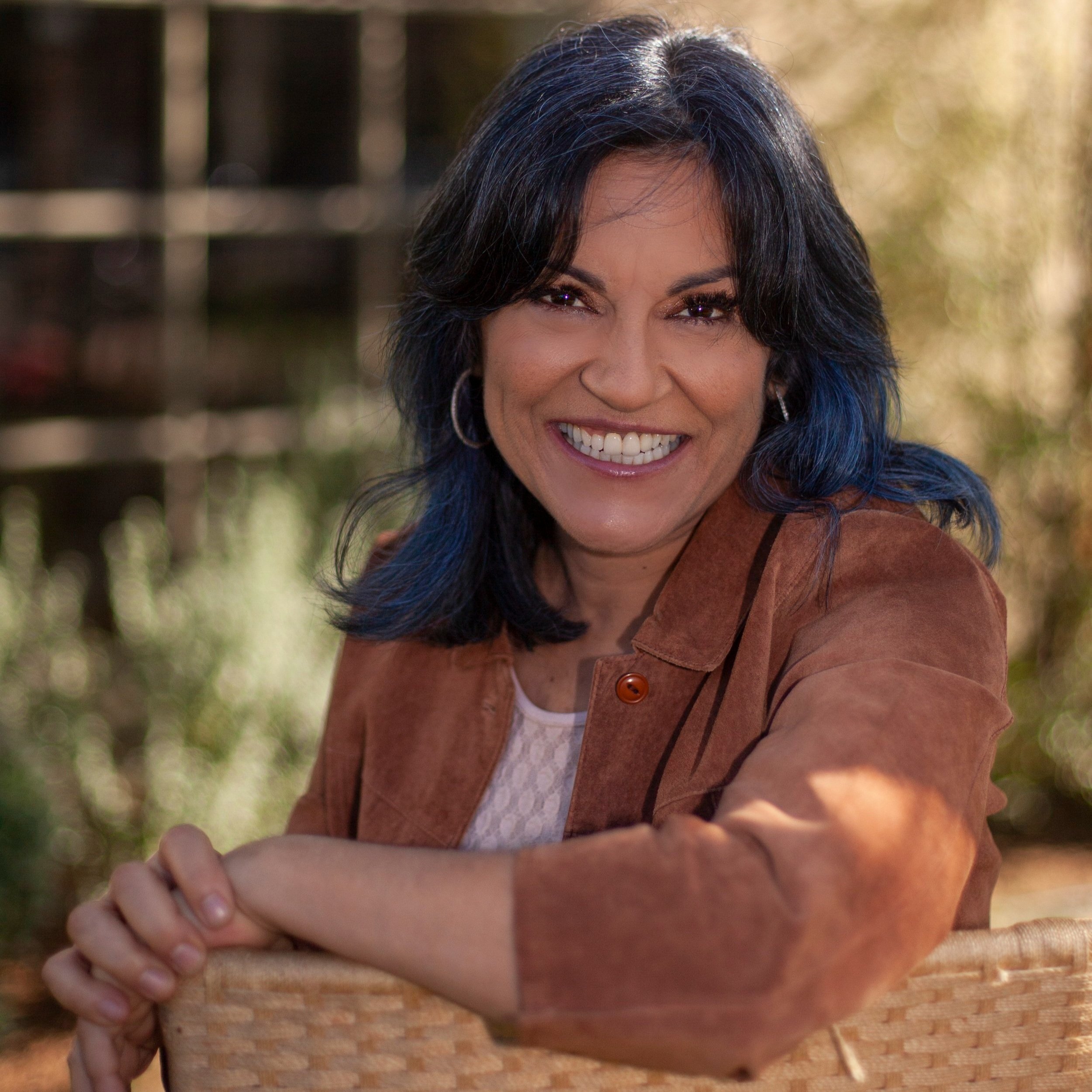
What are the key elements that make Gen Z different from previous generations?
“When we think of Gen Z, oftentimes people are really focused on the idea that this generation are digital natives born into a digital world in a way that previous generations just didn’t have,” responded Uhls, a former movie executive at MGM and Sony who now serves as an assistant adjunct professor at UCLA, where she runs the Center for Scholars and Storytellers.
“My focus, and the way I think about this generation, is just the capacity, the possibility, the promise of a generation that has the opportunity to take advantage of the connections that we can have nationally, globally, and that they have been able to see even within their own generation, examples of other Gen Zers who can rise up out of just ordinary lives, and find a voice that can have incredibly broad reach,” said Uhls. “And there’s a really powerful element to that,” said Uhls, adding that Gen Z currently spans the ages of 10-25, which the National Academy of Sciences says is the age of adolescence.
“What my role is, as somebody who’s a little tiny bit older, is that I support and guide and mentor and advise on areas where you might not have the same number of years of experience. But I really appreciate the passion, the desire for impact, and the willingness to put their voice out there in a way that they don’t have to wait to start making change.”
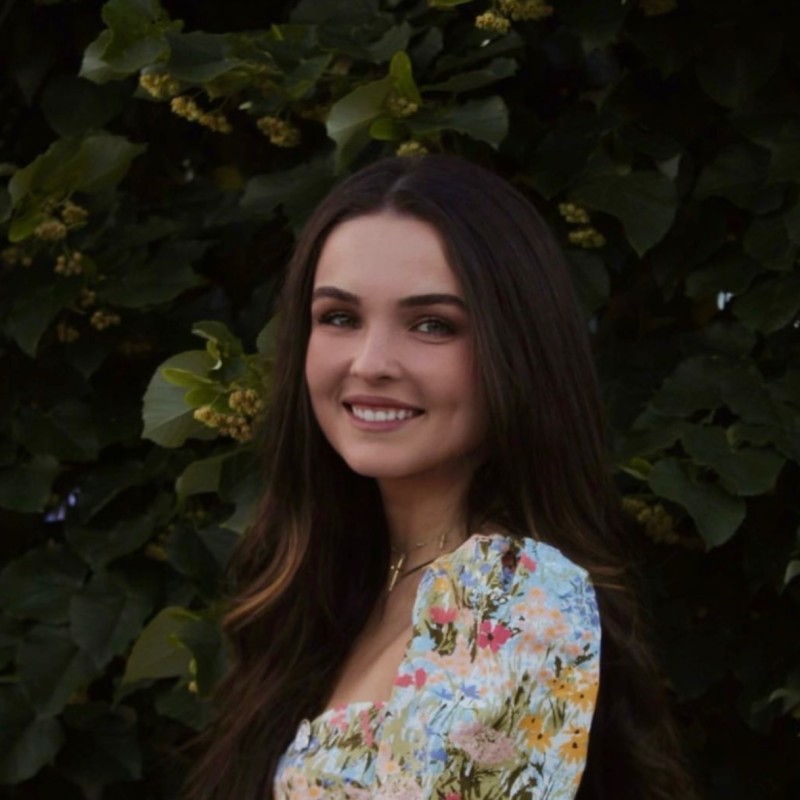
What do you see as Gen Z’s assets? And what can we as parents, teachers, the older generation, do to support you?
“Generation Z is a really politically engaged generation, which is really, really amazing to see,” said Hammett, a 24-year-old USC graduate who got her start in digital organizing through her TikTok account (@victoriahammett), where she discusses reproductive rights, labor rights, and social justice. “One difficult thing I think that Gen Z are struggling with, though, is while they want to be in local politics, they want to run for office, we have to remember that it can be really difficult for young people to do so because the barrier of entry into politics is so high. They don’t have the same connections to donors or people who can help them find donors. So one thing I would say that would be helpful in terms of supporting Gen Z, is being aware of any Gen Z candidates that are running in your community or in your state and just understanding that they really do rely on those grassroots donations to find community support.”
Gottlieb — a 17-year-old whose @talkwithzach account on Instagram has the motto “We can’t change what we don’t talk about” — said, “I know, Gen-Z wants to make an impact. … This is a very diverse and gender-fluid generation. But I’d say our frustrations are mostly, at least from what I’ve observed, like you said, it’s hard to get involved. For the second part of your question, I feel like a lot of times in school, teachers can do a better job of time leading classes, like history and science, and make it relevant and show how we can really have an impact. I’m not saying history and all that isn’t important. It’s more that it would be significantly more resonant if it was tied to what we care about today.”

The topic soon turned to students and stress, particularly related to college applications.
“I feel like this generation knows the words ‘growth mindset.’ We didn’t have that language when I was growing up. And one of the things about growth mindset is all about perseverance and also embracing failure as a natural and maybe necessary part. If you’re not failing regularly, you’re not trying hard enough. So then you kind of flip that switch and think about failure as part of the process, and that it means you’re putting yourself out there. And that’s such an important lesson for all aspects of life,” said Kia-Keating, who is a licensed clinical psychologist in addition to her academic work overseeing the Trauma & Adversity, Resilience & Prevention (TARP) research program at UCSB.
She continued, “So if you see [getting that thin envelope response from a college] that way, then you’re more likely to apply again. You’re refining your interests, you’re refining your essay, you’re getting a little more things in line, and maybe actually even more ready for the second time around.”
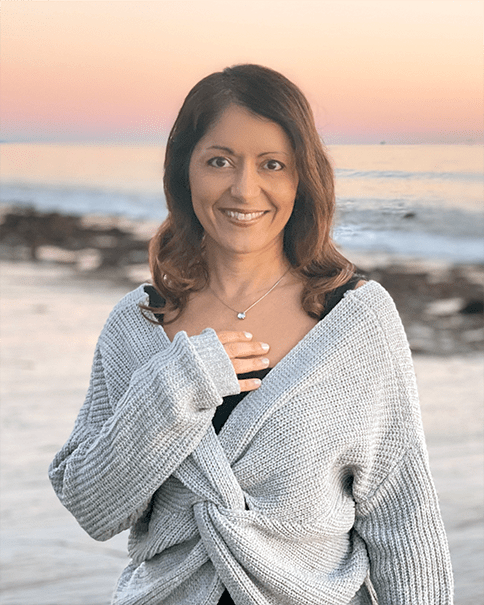
She added, “Everybody is not ready at the same exact moment to suddenly go to college and be independent on their own. … We are seeing mental health going through the roof in our college-aged populations and it frustrates me so much, because these are the amazing next generation who are pursuing higher education. And yet, we’re seeing our counseling centers on college campuses are just struggling to keep up with the numbers of students coming in. And I think, wow, if we could just give people a few more options, maybe they don’t need to go immediately, the moment, the day they graduate from high school. Many other countries do things a little bit differently. I love when I hear about people taking gap years and taking their time and going when they’re ready, and finding their way, maybe not in the exact traditional four years at one place, even, and really tailoring it for you and what your needs are. Embracing that growth mindset, I think, can help with pursuing your goals. But knowing that part of that is that if it won’t work out the first time you’ll refine it.”
Other topics covered included media consumption, what Gen Z wants to see on TV and film in terms of relationships (more fluid relationships and more friendships, not just romantic relationships, said Uhls), and loneliness. “The number-one thing that helps people through difficult times is social support,” said Kia-Keating.
Uhls suggested using media as a way for parents to bring sometimes difficult topics up with their children; for example, she watched the show 13 Reasons Why with her daughter and it opened up a way to talk about suicide and other complicated subjects.
In response to an audience question furthering the discussion about media and misinformation, Uhls said, “We can’t turn the clock back. Media continues. In my book, I talked about a media at the end of the 19th century that parents hated and said it was going to ruin young minds. Does anyone want to guess what that media was?”
The audience had all sorts of the wrong guesses, but the answer was actually books. “So books didn’t go away. Thankfully, they were popularized. But they used to be vilified. There are headlines in newspapers saying we can’t believe parents would let their kids go to the library. So the thing is, we have to adapt; we have to learn; we have to make these platforms more accountable and better. We have to help parents and caregivers of people that are around young people to support them with love, and listening and recognizing they’re both positive and negative.”
Uhls continued, “I do have hope and optimism and I hope that you will too at some point, because there are a lot of good things ahead of you and ahead of us in the world. And I believe that Gen Z is going to lead us.”
The next installment of the El Encanto Literary Club is “Lunch with an Author” on December 5, featuring Thomas Perry and his book Murder Book. For more information, call (805) 845-5800.
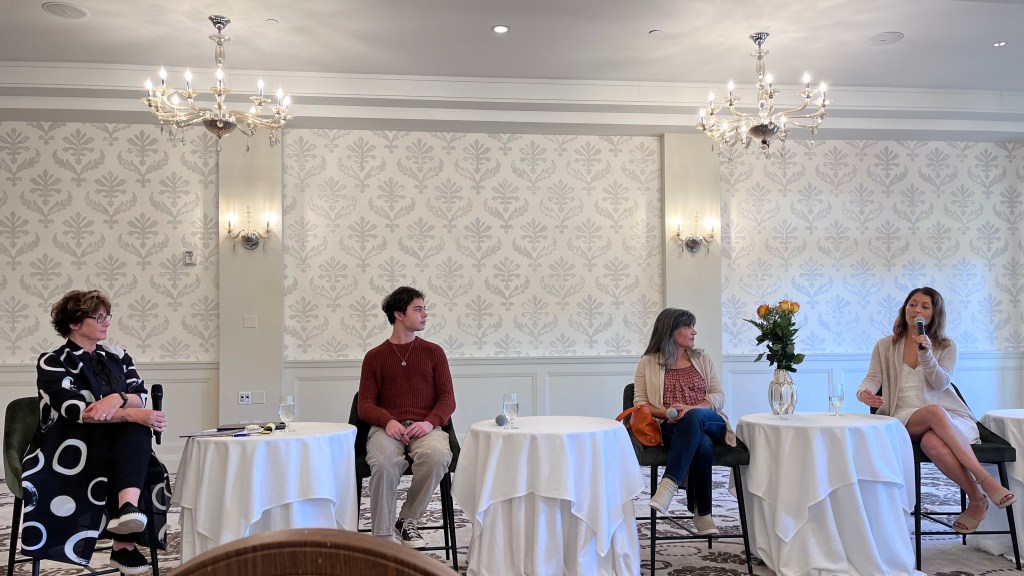

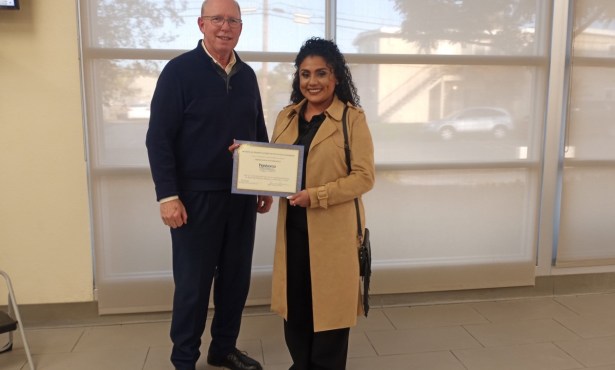
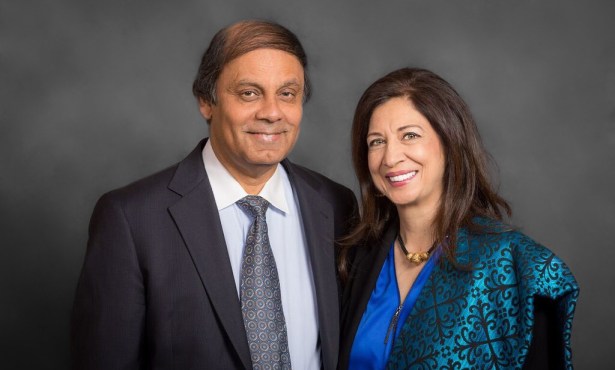
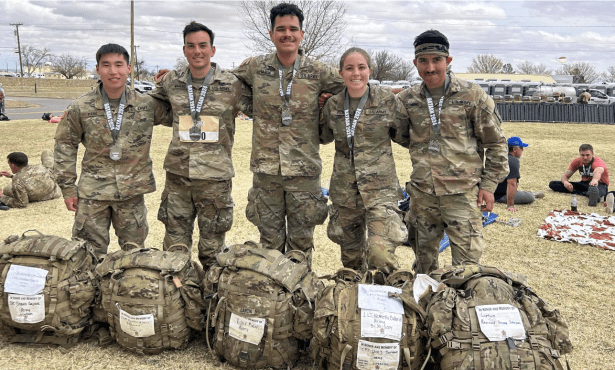
You must be logged in to post a comment.